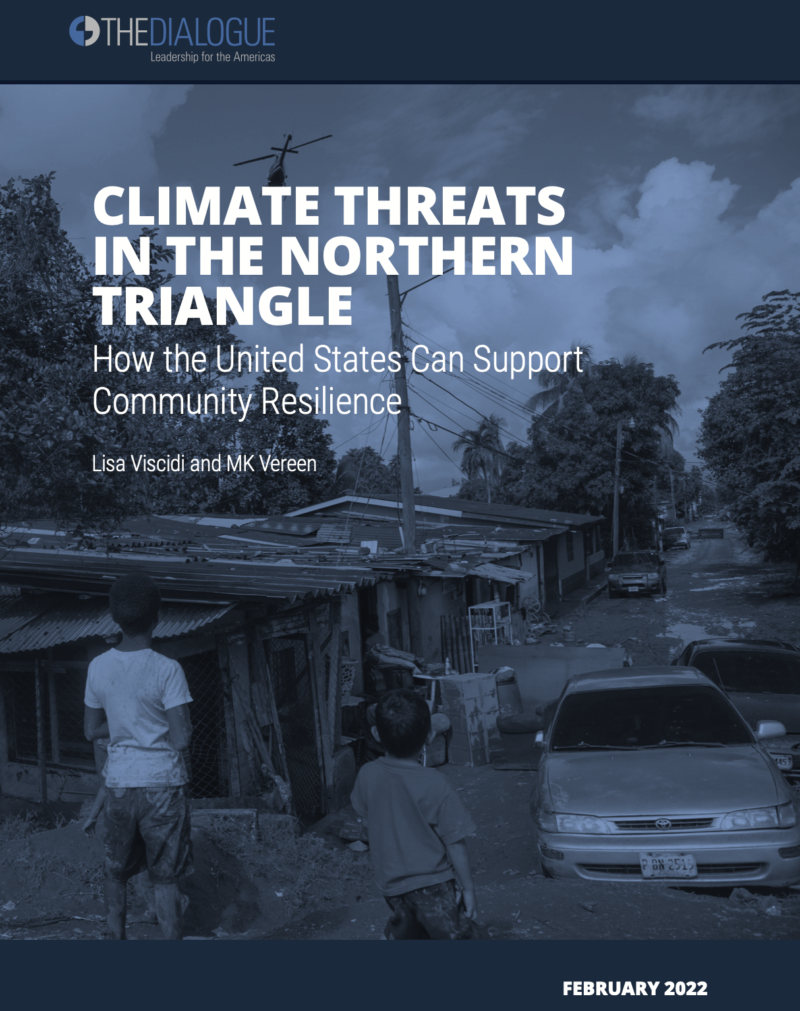
Congressional Testimony: Challenges at the Border
More than 52,000 Central American children, passing through Mexico, have sought entry into the US.
This post is also available in: Español
Rural subsistence farmers, ethnic communities, women, and young people are disproportionately affected by climate change in the Northern Triangle, according to a report by the Inter-American Dialogue, which focuses on adaptation in the region with an emphasis on climate justice and mitigating the impacts on vulnerable communities.
Informed by inputs of the Inter-American Dialogue’s Task Force on Climate Change in the Northern Triangle, the report outlines the impacts of climate change on key sectors, including agriculture and forestry, infrastructure and energy, and finance, and examines how these impacts affect communities. The task force includes a diverse group of representatives from the Northern Triangle, including representatives of environmental organizations, rural, Indigenous and Afro-descendant communities, youth activists, and prominent former government officials and business leaders, as well as technical experts.
Climate change impacts are exacerbating endemic ills like poverty, inequality and malnourishment, and research increasingly suggests that climate change is a contributing factor to internal and external migration. Extreme weather events impact agricultural and forestry productivity, particularly for micro, small and medium enterprises that have limited technology and access to capital to adapt. Climate change threatens the way of life of many Indigenous and other ethnic communities, the majority of whom live in rural areas and depend on subsistence farming and natural resources. Extreme weather also damages infrastructure, threatening housing and electricity access for urban populations that lack resources to upgrade their homes. Floods and droughts put pressure on limited water supplies, particularly in poor communities. Young people face diminishing opportunities in rural areas and worsening living conditions in urban areas.
The Northern Triangle governments have developed adaptation plans, but the institutional capacity to execute programs to prepare for climate change is limited. Moreover, governments in the region rely mainly on scarce domestic finance to cover adaptation costs, while few private companies are investing sufficient sums in adapting their businesses to the changing climate. International donors, including various US agencies, and international financial institutions are supporting climate adaptation efforts, but more assistance is needed.
The report concludes with specific recommendations for short and longer-term assistance from the United States, including:
More than 52,000 Central American children, passing through Mexico, have sought entry into the US.
The outlook for the Northern Triangle is one of both optimism and apprehension.
Though the COP21 negotiations promise to be complex, they also present an opportunity for the region to address existing vulnerabilities.


